Social media hurts girls' mental health and education potential, says UNESCO report
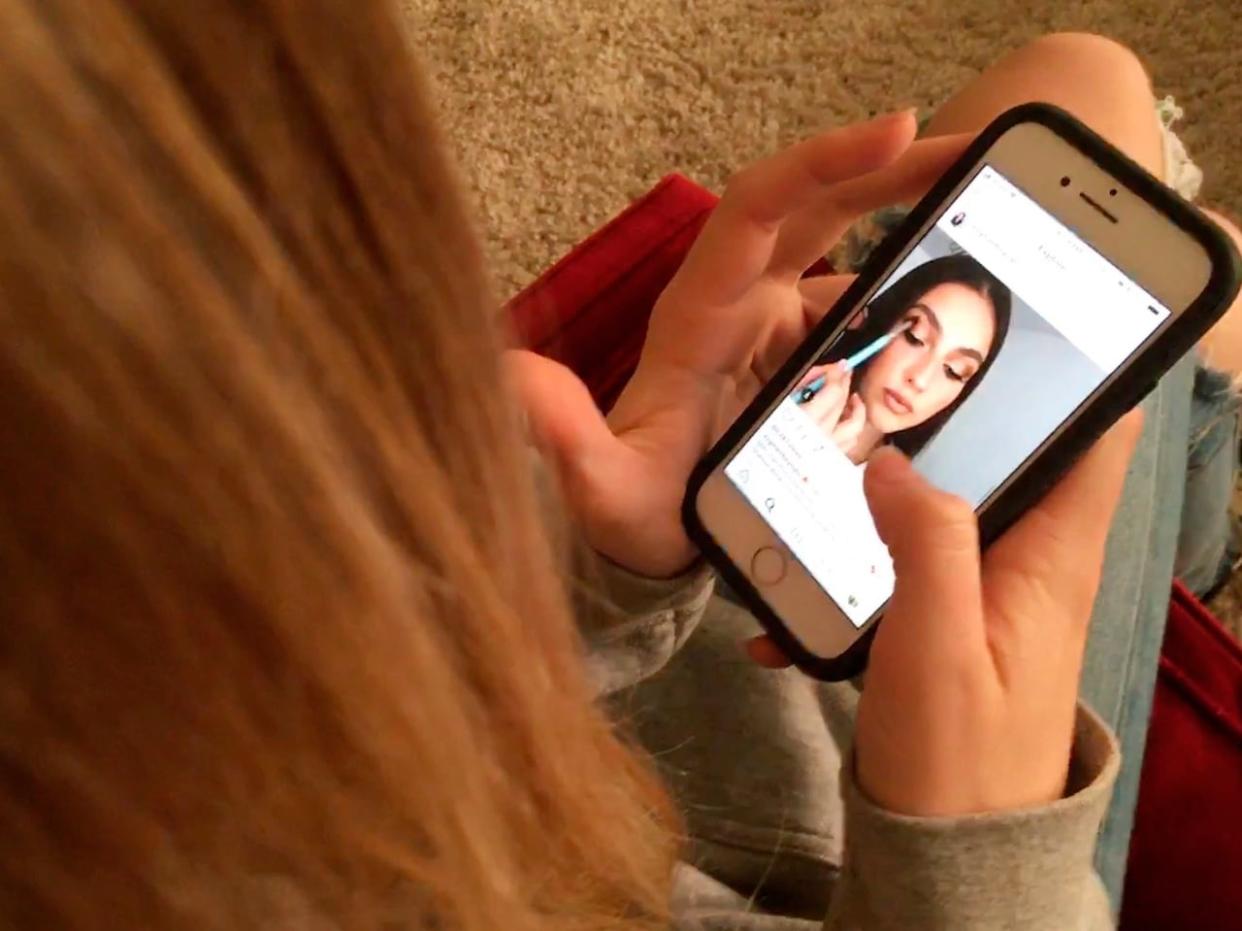
Girls around the world tend to spend more time on social media than boys and it's hurting their mental health, says a new report from the United Nations Educational, Scientific and Cultural Organization (UNESCO).
In the latest edition of the agency's Global Education Monitoring (GEM) report released on Thursday, researchers examined the intersection of education and technology as it relates to girls.
Based on UNESCO data and published research from academics around the world, it broaches a range of topics, including female students' engagement with technology, gender comparison of digital skills and attitudes toward science, technology, engineering and mathematics (STEM) subjects.
Social media was noted as an area of concern. Some findings include:
Social media algorithms can magnify negative gender norms and practices, thus impacting students' wellbeing.
The wellbeing of girls, who tend to spend more time on social media, is under more strain than boys.
Social media users reported more body-related image concerns than non-users.
The addictive design of some platforms can lead to excessive screen time and distract students from academics and extracurricular activities, and may also affect attention spans and learning habits.
'Negative impacts' on learning
The report arrives at a time when lawsuits againstsocial media giants and updates to online harms legislation have contributed to more scrutiny into how the digital world impacts young people.
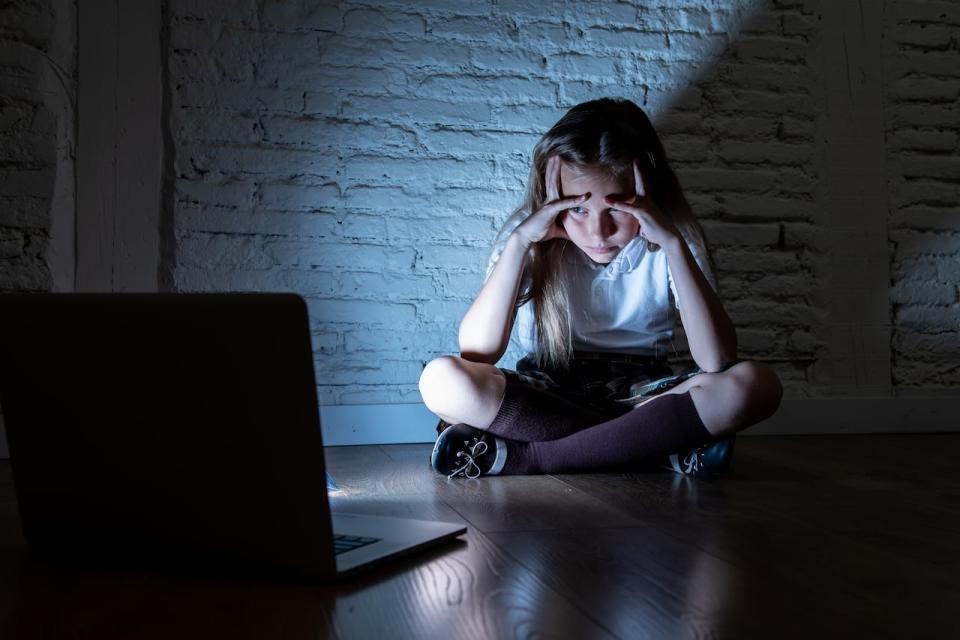
Girls are more negatively affected by social media than boys, according to GEM director Manos Antoninis. 'That also has impacts — negative impacts — on learning and that is where we're really concerned.' (Sam Wordley/Shutterstock)
Girls are more negatively affected by social media than boys, for instance in developing negative feelings and emotions over body image, according to Manos Antoninis, the Paris-based director of UNESCO's ongoing GEM report.
"That also has impacts — negative impacts — on learning and that is where we're really concerned."
In education circles, technology is generally viewed in a positive light, he noted, because "of the potential it brings to improving the content, making so many resources available at the tip of our fingers [and] engaging young people with the new opportunities."
Feeling included in their classrooms is key to academic success, but if a student feels singled out, ridiculed or bullied on increasingly ubiquitous social media, "they disengage from their education and that is something that we don't want to see."
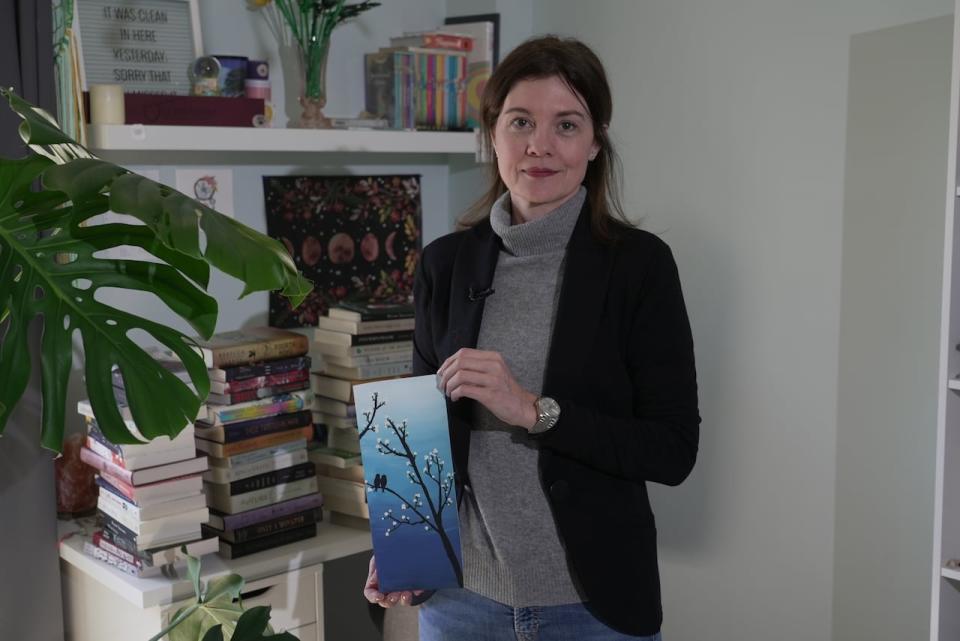
Ontario parent Kelly Dynes stands in the bedroom of her 17-year-old holding artwork created by her daughter. Dynes says social media was a factor that exacerbated her teen's disordered eating, which derailed her schooling. (Yan Theoreti/CBC)
Young people struggle process content, mum says
Whitby, Ont., parent Kelly Dynes' daughter should be graduating Grade 12 this year, but hospital visits and treatment for anorexia have delayed the teen's schooling. Dynes attributes the 17-year-old's disordered eating to "a perfect storm" of different factors, but believes social media played a significant role.
Though her daughter had been an A-student, Dynes said online content led her teen down a damaging path where she began to constantly question herself, thinking: "I'm not enough. I can't do it. I'm not pretty enough. I'm not fit enough. I'm not smart enough."
Just before the pandemic, the teen was a bright, high-achieving eighth grader fascinated by biology, botany, the environment, painting and crafts. After classes first moved online, Dynes saw her daughter develop an interest in fitness and exercise videos, which morphed into searching out healthy eating content, which then shifted to "how to cook to be fit" or "how to cook to be thin."
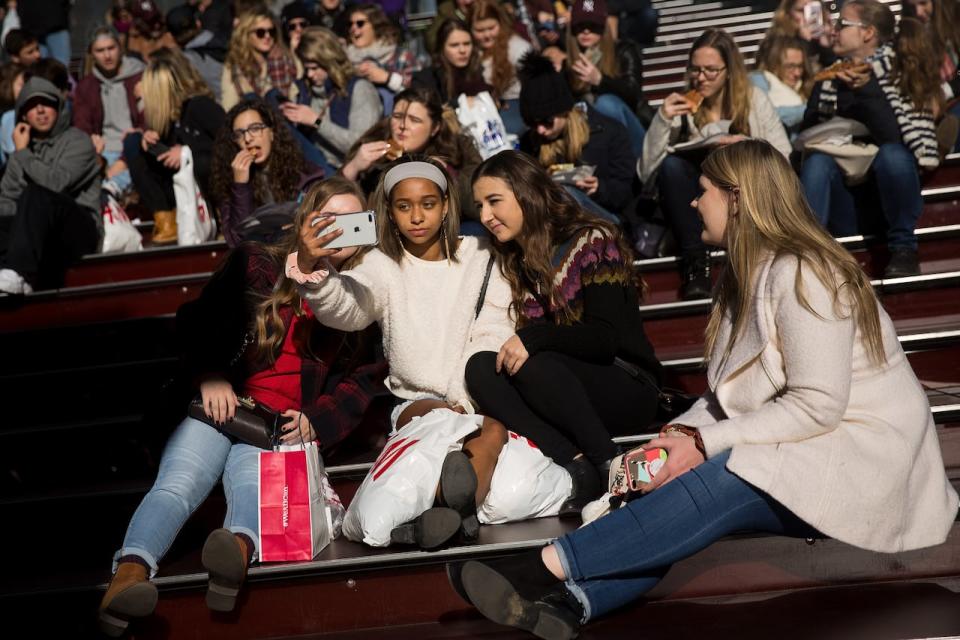
Teens are exposed to a barrage of social media content 'and they really don't have the ability to process it and understand what's good, what's bad, what's real, [and] what's not real,' Dynes said. (Drew Angerer/Getty)
By September 2020, the teen had her first treatment for anorexia. She continues to pursue treatment at a facility in the U.S., as she gets back on track with her schooling virtually.
"Social media being unregulated, kids ... get sent this content and they really don't have the ability to process it and understand what's good, what's bad, what's real, [and] what's not real," Dynes said.
WATCH | How social media 'rabbit holes' can hurt developing teen minds:
For some young people, interacting and communicating with others online is valuable in filling the "social bucket" in their lives, said Dr. Rachel Mitchell, a child and youth psychiatrist at Sunnybrook Health Sciences in Toronto.
Still, that UNESCO flagged social media as a concern sends an important message about its potential influence on girls today, she added.
"It sucks you in so to speak, into what's called a rabbit hole. And if you're not in a good place mentally, the ability to a) process what you're seeing, b) regulate what you're seeing and c) cut yourself off, is extremely hard," Mitchell said.
"There's no parent eye around… and so you're really left, literally, to your own devices to fend for yourself."
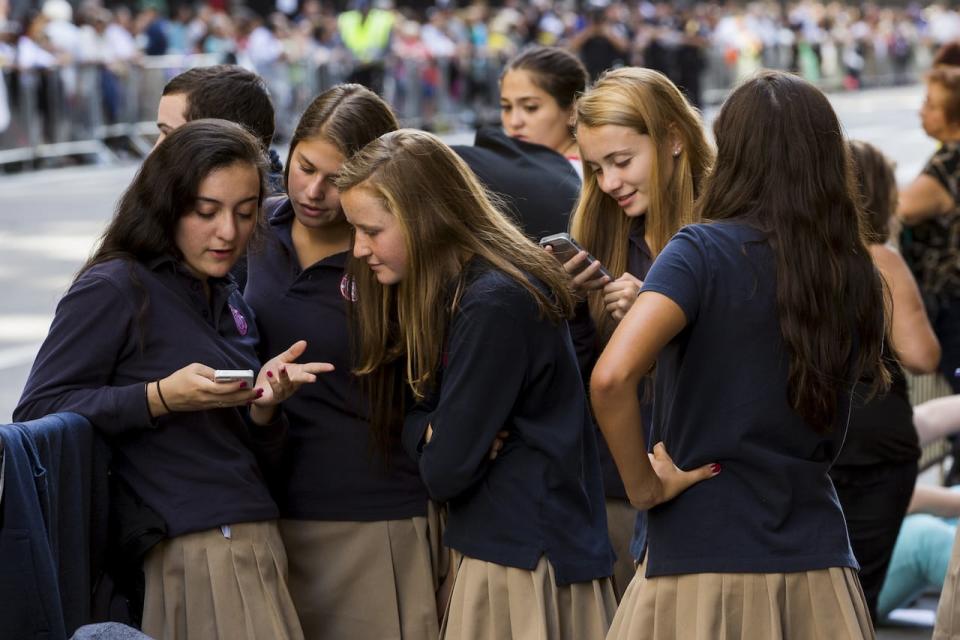
While teen magazines might have been blamed for fuelling negative body image issues in the past, the problem is now more ubiquitous with social media, said Toronto-based child and youth psychiatrist Rachel Mitchell. (Lucas Jackson/Reuters)
Intensifying long-standing problems
In the past, teen and women's magazines were blamed for fuelling negative body image concerns in girls, but the difference now is that online content is unrelenting, Mitchell noted.
"You wouldn't always have a magazine in your back pocket to look at every spare moment ... which is essentially what's happening [with smartphones]. So it's the volume and the intensity of the information. The vulnerability really hasn't changed," she said.
"That was already there in society and it's just magnified that much more."
Mitchell acknowledges that regulating social media is a complex discussion involving a host of issues, viewpoints and stakeholders.
"We need to have conversations about social media in schools. We need to have conversations about social media in our family lives. We need to have conversations about how much social media we as individuals are going to allow ourselves to use — and all those things apply to teenagers and younger children as well," she said.

